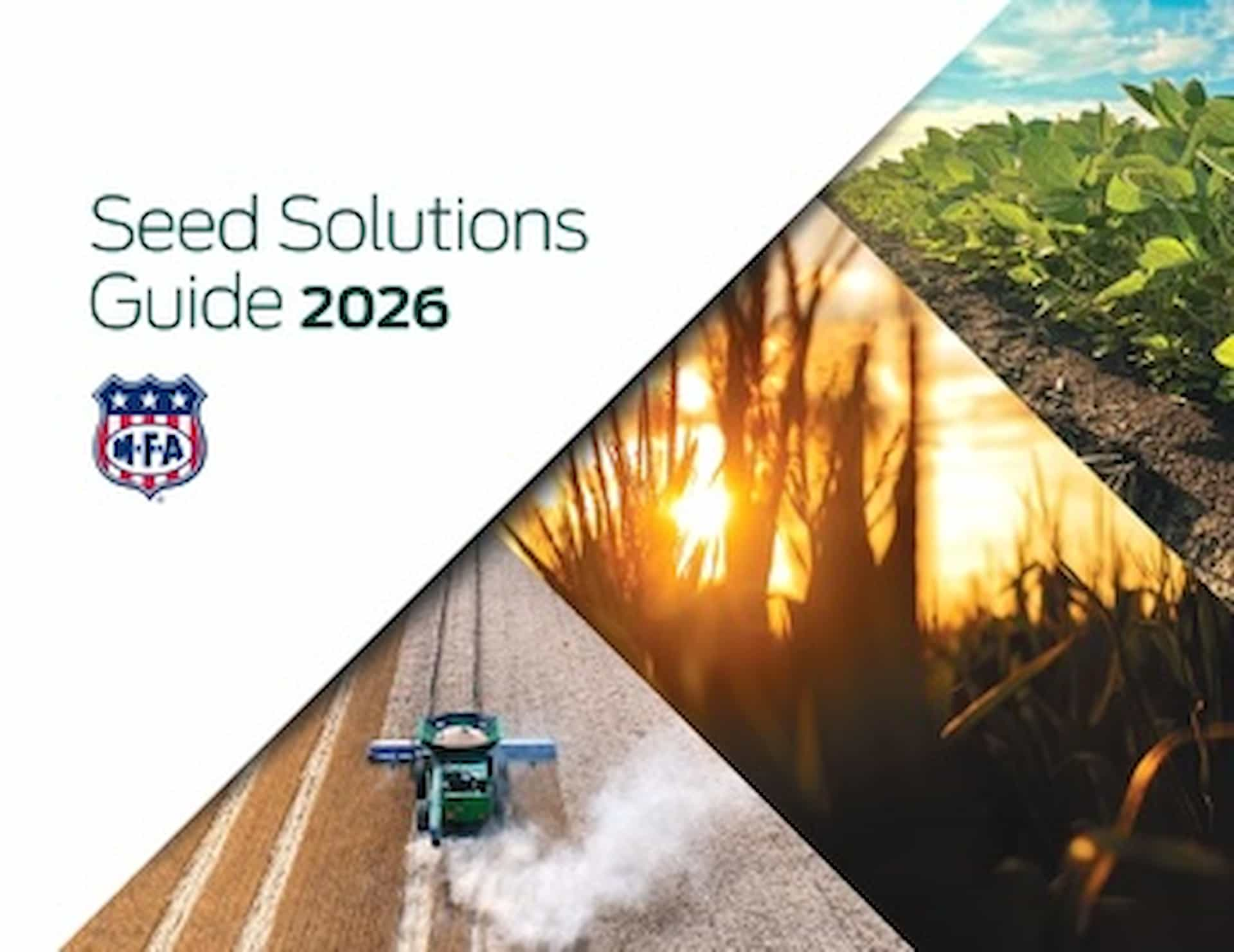Seed
Planting possibilities
With a vast portfolio of proprietary and partner brands, MFA offers the latest traits and technology to ensure you get the most return out of your seed investment.
Seed that meets your needs
MFA offers the latest traits and technology to ensure you get the most return out of your seed investment.
With a vast portfolio of proprietary and partner brands, MFA delivers the most technologically advanced seed on the market selected from genetics that meet your unique and local challenges. MFA’s seed selection includes corn, soybean, wheat, grain sorghum, rice, cotton, forages, turf, specialty crops, wildlife plot mixes and cover-crop species.We’ve leveraged our in-depth knowledge to develop proprietary lines of seed such as MorSoy and MorCorn, both distinctly bred to maximize yields in the soil you farm. MFA’s offerings also include a broad range of products from national brands: Bayer’s DeKalb, Asgrow and Deltapine, Syngenta’s NK, Corteva’s Brevant and Phytogen and BASF's Stoneville and Fibermax.
MFA’s ability to mix and match brands opens up a world of possibilities for growers, allowing our agronomy experts to tailor a seed package that will lead the farmer to greater success.We highly prioritize the value of a relationship. The better we know you, the better we serve you. We walk your fields. We help you plan. We bring you innovative products and agronomic support. We work with you all year long, not just during the growing season, to help maximize the profitability of your fields.
View our new Seed Solutions Guide
MorCorn
MFA’s brand is your brand
MorSoy
MFA's own soybean line, selected for you
MorSoy has led growers through more than 30 years of change, continually improving our portfolio to bring you the best soybean selection. Our strategy in genetic selection includes an aggressive approach to delivering the latest available genetics, disease resistance, and herbicide traits represented in our varieties. Each year the MorSoy product manager tests new soybean varieties in several local replicated trial testing sites. Only varieties that demonstrate the ability to yield well and excel in the soil types, disease pressures and environmental conditions in MFA's trade territory will advance to the MorSoy portfolio.
View our new Seed Solutions Guide
The 2025-26 Seed Solutions Guide brings all the MorCorn, MorSoy and MFA Wheat seed data and the story of MFA's signature seeds in one place.
Click to view the products as a flip book or get a copy from your seed specialist.
Planting cover crops
With proper management and planning, cover crops can benefit a farm economically and environmentally. A cover crop is a plant that is used between cash crops or on fallow ground primarily to slow erosion, improve soil health, enhance water availability, smother weeds, help control pests and diseases, increase biodiversity and bring a host of other benefits to your farm. When choosing cover crops for your operation, select species that will work in your rotation and meet the goals you have for your farm. Use the soil health principles listed below to guide your decisions and help set goals for your operation.
Bare soil is more susceptible to high temperatures, which kill soil biology. Maintaining crop residue keeps soil cool and protected from erosion due to rain splashing on the soil surface.
Most cash crops are only actively growing for one-third of the year. Living plant roots help reduce compaction, scavenge nutrients and provide food for soil biology.
Frequent tillage decreases soil structure and water-holding capacity, which makes crops vulnerable to drought. Surface crusting can also reduce crop emergence. Increased runoff from compacted soil can cause extensive soil erosion.
Adding more species of plants growing on the soil surface will diversify the number of soil microbes that are actively working under the surface. Maintaining crop rotations, including small grains, and diverse cover crops can help keep more species of plants growing.
ASK US ANY QUESTIONS
If you have a question related to one of MFA’s products, send us a message here. We will direct it to the appropriate expert and get you an answer. If you have specific questions about product availability or pricing at your MFA retail store, contact your MFA representative or use our Store Locator to find information for the location nearest you.


